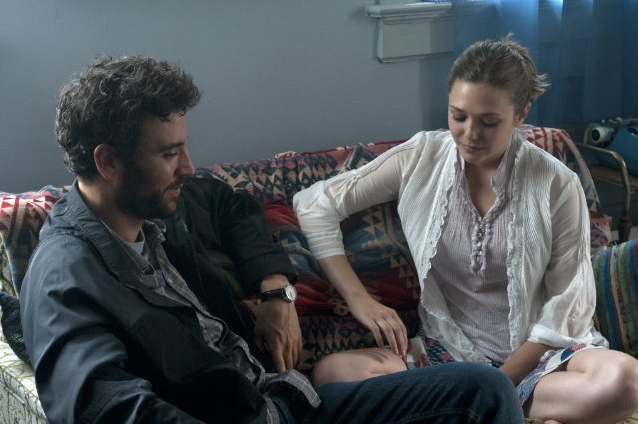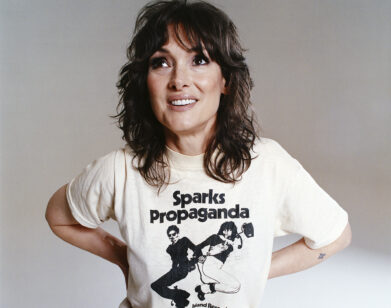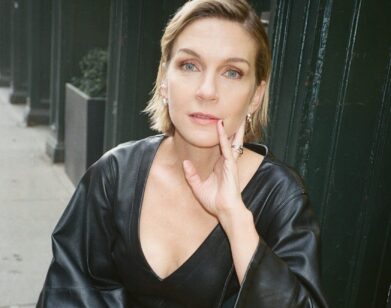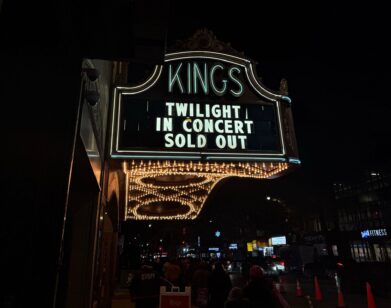Radnor and Olsen Close the Gap

ABOVE: JOSH RADNOR AND ELIZABETH OLSEN IN RADNOR’S LIBERAL ARTS.
She’s 13 in 1996, in Ted Demme’s Beautiful Girls. Her name is Marty, and she’s played by a post-Léon Natalie Portman. In Josh Radnor’s Liberal Arts, she’s 19, her name is Zibby, and she’s nothing like Lizzie Olsen’s Martha Marcy May. At first, both Marty and Zibby—much like their names, much like their readiness to play up, to rib as if possessing wisdom far beyond their years—appear plucked from some idealized male fiction where a young girl or woman endowed with bionic poise can offer answers to his disquieting questions, can offer him epiphanies. Marty fancies herself “an old soul” and Zibby appreciates that she might be “advanced.” Neither is interested in the boys from school. And yet, neither is too charming or wickedly precocious. Simply, their eagerness to meet life is a language unto its own. As Radnor shared with us in a recent roundtable interview, “My characters search around for the right way to say things.”
Set on an Ohio college campus with a few scenes in New York (and with a slight nod to Woody Allen’s Manhattan), Liberal Arts follows Jesse (played by the writer/director in his sophomore effort), a 35-year-old university admissions counselor who, at an impasse, excitedly agrees to return to his alma mater and toast his college English professor, Peter Hoburg (Richard Jenkins). Hoburg, as it happens, is confronting his own jangling anxieties—the uncharted, perhaps dulling world of retirement. There, Jesse meets Zibby. Sparks fly, letters are soon feverishly exchanged, and a plan is hatched for the two to meet again. In some ways, Zibby embodies the vitality of Jesse’s college memories. Like the campus and Radnor’s directorial tone, she is timeless. Even the film’s score sounds ageless. Its cultural references too, unless centuries old, are nonexistent. No Facebook. No Twitter.
But like most narrative romances, especially ones with bookish types, their love is star-crossed. After all, they are a generation apart. In one of the film’s more comedic turns, Jesse scribbles the math on a pad of paper. Like Willy, who in Beautiful Girls says drunkenly to a friend, “I could wait, ’cause in ten years she’ll be 23, and I’ll be 39, and it won’t be a big deal,” Jesse too is faced with impossible odds. Along the way, these odds and his general unrest, find meaning through encounters with characters like Zac Efron’s Puck-like Nat, who appears as if a figment of Jesse’s imagination. Rounding out the cast is Allison Janney as a terrifically cynical Romantics professor; a trait and “epidemic” that Radnor, in the movie and in life, does not particularly value.
Despite Radnor’s optimistic lens, it’s worth mentioning that Olsen’s Zibby dodges her character’s obvious clichés. Starring opposite a lost grown-up boy, Zibby’s shrewdness does not discount her vulnerabilities but instead affirms them. Olsen in particular, performing on her own fulcrum, steers away from any formula. “She’s so perfect for the role that people think I must have written it for her,” Radnor remarked. The compliment circled back when Olsen, later, likened Radnor’s script (every labored-over “Um” or “You know”) to the meticulous nature of writing for the stage. “There’s a smartness to it,” she explained—a quality that Olsen, who reads a script a day, undoubtedly appreciates.
In person, Radnor and Olsen’s chemistry is clear. Like in the movie, their mutual, sometimes teasing awe is the upshot of two people who welcome the other’s infinite newness. So much so that in between questions, Radnor and Jesse were one in the same, sharing advice as if Olsen was Zibby. “Your 20s, they say—they’ve done these studies—are your most unhappy decade.” Olsen, stunned, exclaimed quite incredulously, “Really?!”
While happythankyoumoreplease was, as Radnor notes, his “20s” story, Liberal Arts is his 30s story. “I have new concerns but they’re a little more existential or cosmic in a really nice way, and they’re not as petty, it feels like.”
LIBERAL ARTS IS OUT NOW.






